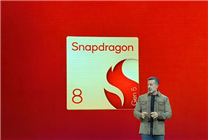Google Reconsiders JPEG-XL Support: A New Chapter for Web Developers
Summary:
- JPEG-XL Reintroduction: Google is considering reinstating JPEG-XL support in Chrome by 2026.
- Industry Demand: The decision follows growing developer and user demand, as alternative browsers adopt the format.
- Technical Developments: Plans are underway to ensure a high-performance, memory-safe JPEG-XL implementation.
In November 2022, Google made headlines by abruptly announcing the removal of JPEG-XL image format support from its Chrome browser. This unforeseen decision sparked considerable backlash among web developers and users who valued the format’s potential benefits. Fast forward to 2026, and Google engineers are revisiting the idea of reintroducing JPEG-XL support, a significant shift driven by evolving industry dynamics.
The Background of JPEG-XL Removal
The removal of JPEG-XL support was met with disappointment, as developers and users alike recognized the format’s advantages, such as superior compression and quality retention. Despite Google’s swift action, JPEG-XL continued to thrive alongside other emerging image formats like WebP and AVIF, proving its resilience in the evolving digital landscape.
The Shift in Perspective
Recently, Google engineer Rick Byers announced a pivotal development: Safari has integrated JPEG-XL support, and Firefox has updated its technical stance as well. This shift, combined with ongoing signals from the developer community—including high-profile support on the Bug Tracking System and several surveys—has prompted Google to reconsider its earlier decision. There is a notable demand for cross-browser interoperability, reinforcing the argument for JPEG-XL’s reinstatement.
Technical Commitments and Future Plans
In light of the new developments, Google is seeking community input to facilitate the integration of a high-performance and memory-safe JPEG-XL decoder into the Chromium project. In order to proceed, a clear commitment to long-term maintenance is necessary, aligning with Chrome’s typical development and release standards. The team recently proposed a plan to reintegrate JPEG-XL—including animation support—into the Chromium/Blink engine, using the existing libjxl library. However, as part of its commitment to memory safety, the implementation may transition to a more modern decoder solution, such as jxl-rs, which is based on the Rust programming language.
The reopening of the original issue ticket regarding JPEG-XL decoding support indicates a renewed focus on this technology, with significant momentum behind its potential reintroduction.
Conclusion: A Promising Future for JPEG-XL
As Google navigates the complexities of web standards and developer needs, the reconsideration of JPEG-XL support marks a promising evolution in browser technology. By actively engaging with the community and adapting to market demands, Google may offer a robust solution that benefits developers and enhances the overall web experience. The potential reinstatement of JPEG-XL support not only reflects a responsive development approach but also underscores the importance of cross-browser compatibility in a rapidly changing digital environment.










